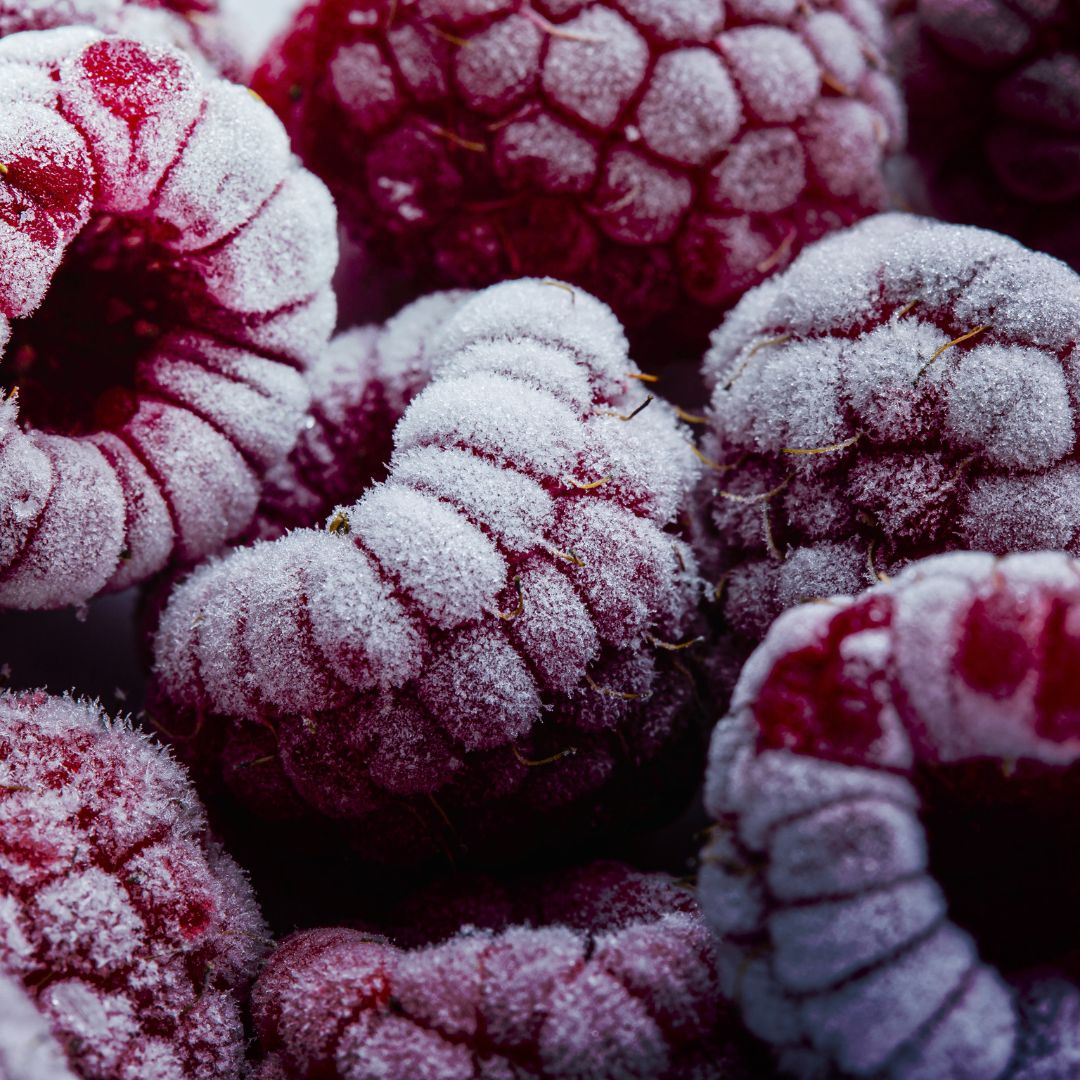
Can You Freeze Exotic Fruits?
Share
When your box arrives filled with vibrant, fruits from you might wonder:
"How can I make these treasures last longer?" While enjoying exotic fruits at their peak freshness is ideal, freezing can be an excellent way to preserve their unique flavours and nutritional benefits.
In this guide, we'll explore which exotic fruits freeze well, proper freezing techniques, and creative ways to use your frozen exotic fruit bounty.
Which Exotic Fruits Freeze Well?
Not all fruits respond to freezing in the same way. Here's our breakdown of how common exotic fruits from your box handle freezing:
Excellent Freezing Candidates
Dragon Fruit: Freezes beautifully, maintaining both colour and flavour. Perfect for smoothies.
Mango: Retains excellent flavour and texture when properly frozen. Can be used in multiple applications.
Passion Fruit: The pulp and seeds freeze remarkably well, preserving that distinctive tangy flavour.
Lychee: Maintains good flavour though texture will soften. Best used in cooked applications after freezing.
Papaya: Freezes well when properly prepared. Excellent for smoothies and sorbets.
Good Freezing Candidates
Jackfruit: The ripe, sweet pods can be frozen, though there may be slight texture changes. Still delicious in smoothies or cooked dishes.
Guava: Maintains flavour but texture becomes softer. Best for cooking applications after freezing.
Soursop (Guanabana): The pulp freezes well, though the texture will be suitable primarily for smoothies or cooking after thawing.
Star Fruit (Carambola): Freezes adequately though colour may dull slightly. Best used in cooked applications after freezing.
Poor Freezing Candidates
Rambutan: The texture degrades significantly when frozen. Best enjoyed fresh.
Mangosteen: Does not freeze well; the delicate flesh becomes mushy and loses its subtle flavour nuances.
Longan: The texture becomes unpleasantly mushy when frozen and thawed.
Cherimoya: The complex flavour profile deteriorates with freezing, and the texture becomes grainy.
Proper Freezing Techniques for Exotic Fruits
For the best results when freezing exotic fruits from your The Epicerie box, follow these techniques:
1. Preparation is Key
- Always freeze fruits at their optimal ripeness—neither underripe nor overripe
- Wash and thoroughly dry fruits before freezing
- Remove all inedible parts (peels, seeds, pits, rinds) unless they're part of the eating experience (like passion fruit seeds)
- Cut fruits into pieces appropriate for their intended use (slices, chunks, or puree)
2. Flash Freezing Method
For fruits that you want to keep separate (not clumped together):
- Line a baking tray with parchment paper
- Arrange prepared fruit pieces in a single layer, ensuring they don't touch
- Freeze for 2-4 hours or until solid
- Transfer frozen pieces to airtight containers or freezer bags
- Remove as much air as possible before sealing
3. Puree Method
For smoothies, sorbets, and cooking applications:
- Blend ripe fruit until smooth
- Add a tablespoon of lemon juice per 500g of puree to prevent browning (optional)
- Pour into ice cube trays or freezer-safe containers
- Freeze until solid, then transfer cubes to freezer bags if desired
4. Sugar Syrup Method
For fruits that tend to darken or develop off-flavours:
- Prepare a simple syrup (1 part sugar to 3 parts water, brought to a boil then cooled)
- Place fruit pieces in airtight containers
- Cover with cooled syrup, leaving 1cm headspace
- Seal and freeze
Optimal Storage Duration
Even in the freezer, exotic fruits don't last forever. Here's how long you can expect to maintain good quality:
- Flash-frozen fruit pieces: 8-12 months
- Fruit purees: 6-8 months
- Fruits in sugar syrup: 10-12 months
Thawing Recommendations
How you thaw frozen exotic fruits depends on their intended use:
- For smoothies and frozen desserts: Use directly from frozen
- For baking and cooking: Thaw partially or completely, depending on the recipe
- For fresh consumption: Thaw completely in the refrigerator (though texture will be softer than fresh)
Creative Uses for Frozen Exotic Fruits
Frozen exotic fruits open up a world of culinary possibilities:
Breakfast Applications
- Tropical Smoothie Bowls: Blend frozen dragon fruit, mango, and passion fruit with a splash of coconut milk for a vibrant breakfast
- Exotic Fruit Porridge Topping: Thawed exotic fruit compotes add excitement to morning porridge
Dessert Ideas
- Instant Exotic Sorbets: Blend frozen fruit pieces with a touch of honey and lime juice
- Tropical Frozen Yoghurt: Mix puréed frozen fruits into Greek yoghurt for a quick frozen treat
- Exotic Fruit Ice Lollies: Combine various fruit purées for colourful, layered treats
Savoury Applications
- Tropical Salsas: Partially thawed mango, papaya, and passion fruit make vibrant toppings for fish or chicken
- Exotic Fruit Chutneys: Cook down frozen fruits with spices for unique accompaniments to cheese or curry dishes
Beyond Freezing: Other Preservation Methods
While freezing is convenient, consider these alternative preservation methods for your exotic fruits:
- Dehydrating: Works beautifully for mango, pineapple, dragon fruit, and papaya
- Jam-making: Passion fruit, guava, and mango make exceptional preserves
- Pickling: Green papaya and mango can be pickled for savoury applications
Final Tips from The Epicerie
We recommend:
- Labelling all frozen fruits with contents and date
- Using the oldest frozen fruits first
- Keeping your freezer at a consistent -18°C or below
- Using proper freezer containers to prevent freezer burn
- Enjoying at least some of each exotic fruit fresh before freezing the remainder
Remember that while freezing is convenient, the flavour and textural experience of a perfectly ripe fresh exotic fruit is unmatched. We recommend enjoying most of your Epicerie box fruits fresh, and freezing only what you cannot consume at peak ripeness.
With these tips, you'll make the most of every exotic fruit delivery, ensuring nothing goes to waste.
From The Epicerie with love
